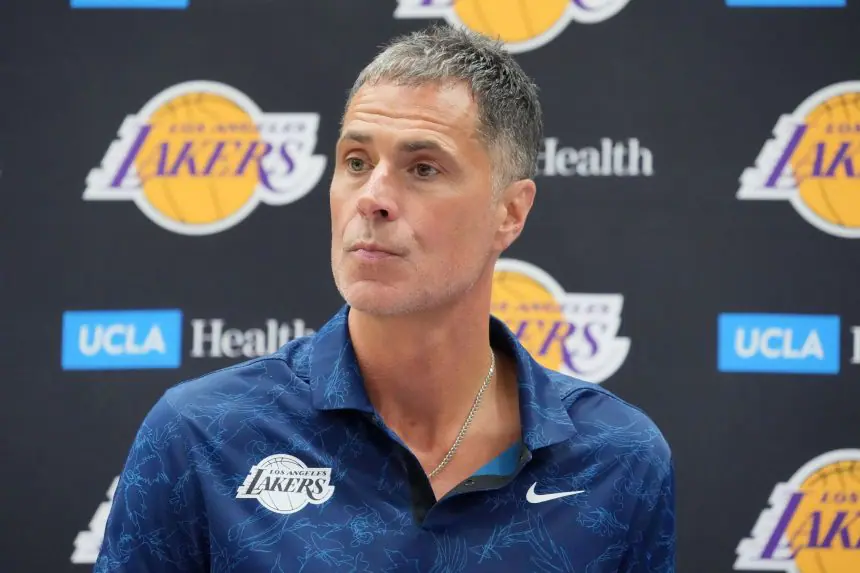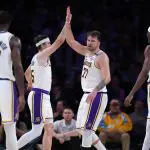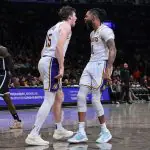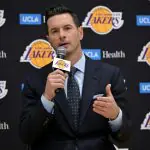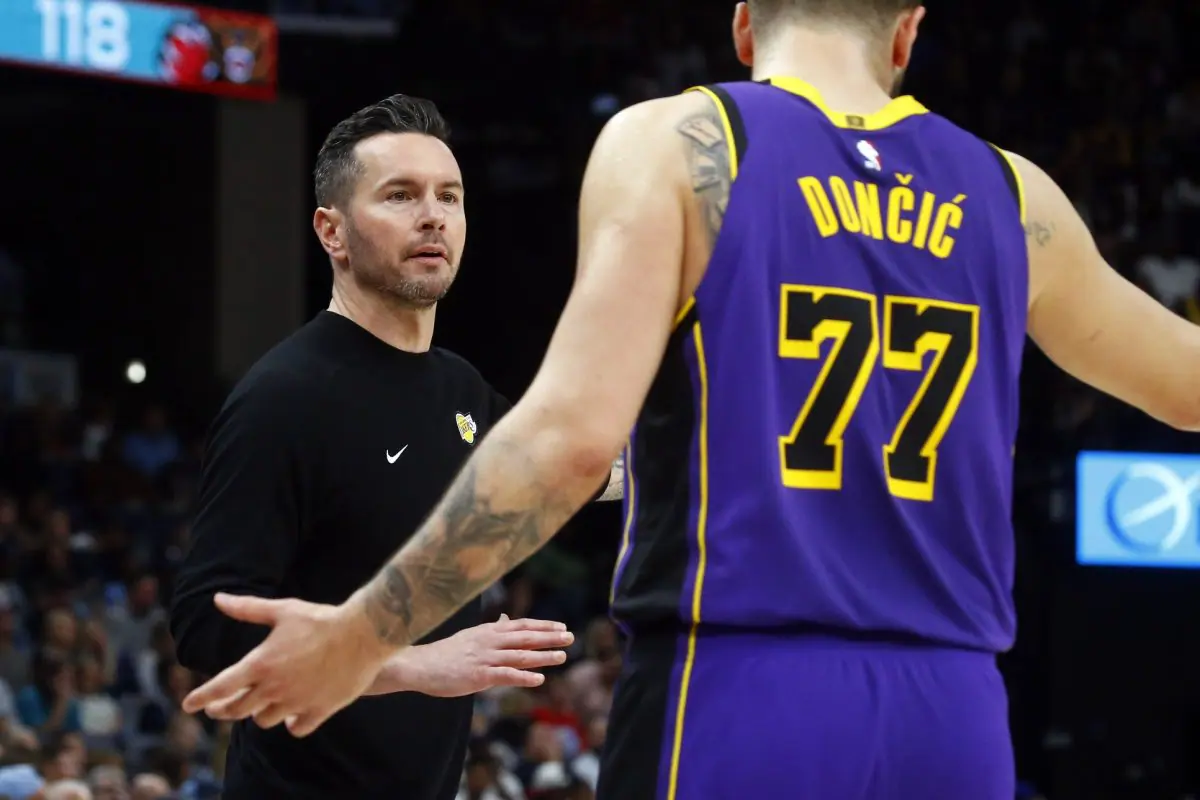Rob Pelinka and the Los Angeles Lakers headed into the summer knowing they had to upgrade the roster coming off a first-round exit and mostly disappointing season. Darvin Ham was fired. JJ Redick was hired. But the changes couldn’t possibly end there, could they?
In all likelihood, according to sources close to the situation, they will. The Lakers are still making occasional calls around the league about trades, but those conversations have slowed considerably and the summer will likely conclude with Dalton Knecht and Bronny James being the only additions to the roster.
So, what happened?
Well, on a macro level, the Lakers organization is plagued still by the fallout from that failed Russell Westbrook trade. As an organization, it’s painfully aware that another misstep of that magnitude would absolutely close their title window. It would also force Jeanie Buss’ hand in making structural changes she absolutely does not want to make.
The result is a franchise paralyzed on every major decision.
Sources say the Lakers were ready to fire Ham as soon as last season ended. It wound up taking a week to make that decision.
Hiring Ham’s replacement took almost two months, and sources close to the Lakers say Redick was the choice for the vast majority of that time, outside of that wild weekend in which the Lakers made that infamous and polarizing offer to Dan Hurley.
“Hurley leaked the kind of offer it would’ve taken to hire him,” an Eastern Conference executive told me. “They knew what it was going to take and still came in well below that line. If you do that, are we sure they ever really wanted to hire him? So was JJ just always the guy?”
Many around the league have been scratching their heads on everything the Lakers did or weren’t able to do this summer.
A major factor this offseason compared to previous ones was the involvement at the top of the organization. Sources say Linda Rambis was more vocal in Redick’s hiring than with previous coaches. Kurt Rambis was heavily involved in putting together Redick’s coaching staff — a process that took up until the end of Summer League.
In an effort to keep closer tabs on information running through the front office, sources say every decision involved Pelinka, the Rambises, Jeanie Buss and Tim Harris throughout the process, which led to far more conversation about each move and wound up gumming things up to the point of complete ineffectiveness.
“Rob is a smart dude,” said a Western Conference scout in the halls of the Thomas & Mack Center in Las Vegas. “You aren’t going to get fired for decisions you don’t make. If you involve your bosses in those decisions, you’re that much safer.”
Another major factor in the Lakers’ stagnant summer: a league that feels it can take advantage of what it considers an inept and desperate organization.
For years, fans have decried a “Lakers tax” that raises asking prices in trade negotiations. While it’s certainly true teams don’t like helping the Lakers if they can avoid it, league sources say the focus is more on getting the Lakers to pay up with the understanding eventually Pelinka will have to save his job with some kind of move.
All summer, Pelinka’s primary trade targets were:
- Jerami Grant, Portland Trail Blazers
- Kyle Kuzma, Washington Wizards
- Bruce Brown, Toronto Raptors
- Cameron Johnson and Dorian Finney-Smith, Brooklyn Nets
- Wendell Carter Jr., Orlando Magic
In each case, sources close to the Lakers and around the league feel the executives on the other side of negotiations inflated the asking price in the hopes of taking advantage of a front office that needs to do something.
“Joe Cronin asking for two first-rounders for Jerami Grant is hilarious,” said the same scout. “Portland traded one first for him and then gave him that terrible contract. Why would he be more valuable now than he was when they landed him two years ago? But it’s what you can do when you feel like the other team is desperate.”
Finally, the last factor that’s affected each set of negotiations the Lakers have had is D’Angelo Russell’s reputation around the league.
Portland has no interest in Russell, according to sources close to that situation. League sources also say Washington is wary of pairing Russell with fellow space cadet Jordan Poole. Toronto and Brooklyn are more open to acquiring the nine-year veteran, but more for his expiring contract than for what he’d do on the court.
Russell is that rare player who is both too good to help teams tank but also not an impact player in the postseason. He’ll turn 29 in February, so he likely is who he is at this point. Add to that some questions about his impact on locker rooms and the market on the most moveable expiring contract the Lakers have at their disposal just hasn’t been great.
Sources say in the days leading up to Russell’s decision to opt into his contract this season, Los Angeles starting quietly canvassing the league for deals. When he finally did exercise his player option, Pelinka started really working to find him a new home, to no avail.
The crux of the issue: L.A. needs Russell a lot more than teams around the league do. He’s their starting point guard. He played legitimately well last regular season, and if moved, his production would need to be replaced. Had Pelinka found a deal earlier in the summer, Tyus Jones could’ve done just that on a minimum contract. As things stand now, Jones is a Phoenix Sun and no other Russell replacement exists on the free agent market.
None of this is meant to excuse the Lakers not doing anything of substance this summer. Pelinka may like to remind fans and media at every turn how difficult his job is, but he is paid extremely well to do it. If he can’t help improve this roster, he needs to be replaced by someone who can. Sources close to the Lakers say Buss is adamantly against even considering such a change.
So, even as fans hold onto every new whisper and report that maybe, just maybe, the Lakers will do something, in all likelihood, Pelinka is done for the foreseeable future. Yes, things change quickly in this league and that always needs to be considered, but unless the trade market sees a real shift, the Lakers will finish this offseason with less talent on their roster than they finished last season with.

